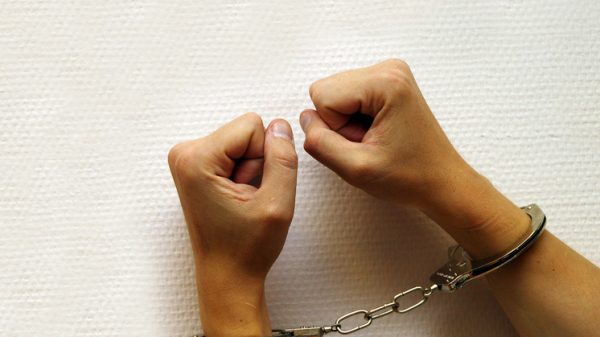 Penelope Wilton, Richard Briers and Peter Egan in Ever Shrinking Circles Photo: BBC
Penelope Wilton, Richard Briers and Peter Egan in Ever Shrinking Circles Photo: BBC
Big Mood is about to start screening six series on Channel 4. It's a sitcom; the story of millennial London friends Maggie (Nicola Coughlan) and Eddie (Lydia West). Can their friendship survive Maggie's bipolar behavior?
So long, Fleabag. TV commissioning comes in waves — not so long ago it was impossible to watch quirky, writer-led, come-of-age family comedies like Raised by Wolves, Grandma's House or The Kennedys, etc. But Fleabag has changed the approach of recruiting the power of friendships with socially unacceptable behaviour, often between young women and with an element of what we now call 'mental health'.
This wave has been with us for a long time — we had Gameface (injury, 2017), Pure (OCD, 2019), Such brave girls (injury again, 2023), Shrill (body image, 2019), This Way Up. (anxiety and nervous exhaustion, 2019), Alma’s Not Normal (trauma plus depression again, 2020). And it wasn’t just the ladies who had fun – we encountered similar problems with guys in the films Flowers (toxic masculinity and depression, 2016), From Behind (grief and personality disorders, 2017), and Girl (toxic masculinity, 2017). Again, 2019), After Life (Grief, 2019), Ted Lasso (Anxiety, 2020), and Big Boys (Depression, 2022).

The quality of these shows inevitably ranges from the sublime to the ridiculous. Now, with Big Mood, we have another one. It's a trend that may have started to get overdone — and comedy seems to be increasingly taking a backseat to depressing stuff — but it's interesting for what it reveals about 21st century culture and society. Based on this, we are neurotic, egocentric and solipsistic.
Most of these shows take place in fairly dark or very dark settings, in urban or suburban settings, with the washed-out color palette (all dark grays and dirty blues) of almost all modern TV shows. Nobody ever turns on the big lights; lighting is provided by weak energy-saving lamps, often up to three in one room. It's all so dark.
We've also somehow convinced ourselves that TV comedies focusing on what we now call mental health are a new and bold innovation. Of course, there is now an acknowledgment or at least naming of the various complaints. These shows are full of therapists, life coaches, and mental health professionals. But sadness and life's struggles have long been a part of British sitcoms. Despite what we tell ourselves, it's not a groundbreaking observation that people with problems—and the people around them—can be funny.
We always liked to be a little sad in our coma. Darkness is an indicator of taste and depth when we evaluate a television comedy. Notes of lingering tragedy and despair, such as in Steptoe And Son or One Foot In The Grave, give them a grain that enhances the humor. Shows that strike a chord with the comedic organs (Mrs. Brown's Boys are the only ones left) are now deeply out of fashion.
 Phoebe Waller-Bridge in the film “Fleabag” Photo: AP
Phoebe Waller-Bridge in the film “Fleabag” Photo: AP
One of the reasons why the (wildly popular) ITV sitcoms of yesteryear still have a bad reputation is that they committed the cardinal sin of being boisterous, rousingly funny and straightforwardly funny. No one in On the Buses or Never Twain saw a therapist, or was likely to see one. They were disposable entertainment, and that can't happen in the serious world of 21st century television, not even in comedy.
However, it was never just about beer and skittles. Looking back, we see that sitcoms have always had what we now call depression or neurodiversity. The big difference is that such struggle and the despair it caused were then expected, accepted — and accepted — as an inevitable part of the fabric of life. You could be sad without being angry.
The brutal first episode of Steptoe and Son — set in supposedly buttoned-up Britain in 1962! – sees Harold breaking down, oppressed by the darkest, most emotionally blocked, most toxic male family relationships imaginable. No one in 1962 would have considered such a label necessary. It was obvious what had happened.
We can see a similar syndrome in many other comedy shows of the twentieth century. What were then tragic circumstances or personality quirks are now classified in medical terms. Martin Bryce of Ever Deceasing Circles — with his constantly simmering anxiety and finicky obsession with small details — would now be instantly classified as OCD.

Many Monty Python characters, especially those played by Michael Palin, are of this breed. “My hard-boiled eggs were in a plastic container that supposedly sealed itself and opened upon contact with the asphalt surface of the road… I think in the future I will attach them to the handlebars of my bike with duct tape,” he said. character Reg Peter tells an uninterested passerby. «This should prevent the same problem from happening again.»
Both Bryce and Peter speak in the standard British male comedy voice of the late 10th century — the monotone suburban voice of John Majorish, perfected by Peter Cook with his E.L. A whisty character who was last taken out on multiple occasions by David Walliams in Little Britain. Now we would immediately call them all representatives of the autism spectrum.
It's the same with other «conditions» we encounter in classic shows. The eponymous hero of The Fall and Rise of Reginald Perrin (1976) suffers from a sense of aimlessness and behaves in increasingly strange and grandiose ways. Today's diagnosis is borderline personality disorder, disantil 200 mg. Bob in Likely Guys (1964) and its sequel Whatever Happened to Likely Guys (1973) is pathetic and sickly. It would be chronic depression and 20 mg of citalopram.
 James Bolam and Rodney Bewes in the film «Likely Guys» Photo: Alamy
James Bolam and Rodney Bewes in the film «Likely Guys» Photo: Alamy
But even back in the day, some shows directly addressed mental health issues. No one but me seems to remember Horace (1982), a very strange show that never reappeared, so I have to rely on memory to tell you about it. (Some excerpts from home VHS recordings have appeared on YouTube.) Roy Minton, screenwriter of the brutal Borstal film Misfits (1979), was a deeply uncomfortable show about a childish man with unspecified problems — perhaps what we now call a learning disability — and his interactions with the people of his small Yorkshire town. The jarring and unsettling “should I really be laughing at this?” modern sadkoms are nothing compared to them. And it came out twice a week in half-hour episodes on ITV in prime time.
Another memorable series in the same vein was the sitcom Lame Ducks (1984) by P.J. Hammond, the creator of Sapphire and the Guitar. Steel. (TV writers were less judgmental back then.) The film features John Duttine as a depressed husband who, after being thrown out by his wife, accidentally gathers around him a gaggle of what were then called «weirdos,» including an arsonist, a super-intelligent young woman, able to fit into society, microphobic and a postman forced to roll a huge inflated yellow balloon everywhere.
 Mel Smith in Colin's sandwich Photo: BBC
Mel Smith in Colin's sandwich Photo: BBC
Around the same year, John Sullivan's forgotten gem Dear John (1986) depicts the patrons of 1-2-1, a social club for singles filled with all sorts of broken people. We can see here the beginnings of today's therapeutic culture, although what is interesting is consultant Louise's attempts to classify, diagnose and label her accusations — with her catchphrase «|And are there any… sexual problems?» — are portrayed as laughably pointless.
It was all friendly and comradely. The idea of outright laughing or rolling your eyes angrily at someone's obvious and serious distress in comedy was almost as unthinkable then as it is now. The darkness of 1990s sitcoms like Waiting on God (old age), Colin's Sandwich (alcoholism), Split Jokes (the trauma of divorce) or Stressed Eric (well, stress) was always tempered by feeling camaraderie and compassion. Alan Partridge's breakdown (and subsequent «bounce back») was the first time in my memory that a real mental health crisis was played out for laughs.

In the 2000s, “The Office” and “Peep Show” remade the sitcom genre, introducing a comedy of minor awkwardness and embarrassment into the series. filmed entirely on location and without laughter. For better or worse, this is the sitcom as it exists today; disorienting, lonely, brooding.
I would suggest that the communal nature of raucous laughter is, if not the best medicine, as Reader's Digest wrote, then still a very good one. At our peril, we have lost that lift—the bright, shiny knee-raising has been replaced by the social atomization and demographic disunity of modern television. And we wonder why we're depressed?
Sadcoms have always been a part of British television, but we could do with some balance of joy in the programme, too. And the friendships of Beryl and Sandra in «The Liver Birds» or Chrissie and Joe in «The Man About the House» are just as true — and perhaps even funnier — than the complex and traumatic «Sturm und Drang» of Maggie and Eddie in «Big Mood.»


























































Свежие комментарии